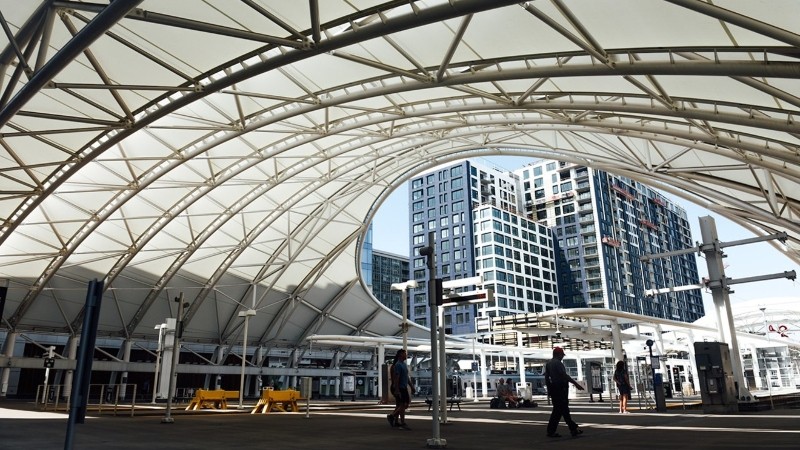But Lisa Raville, executive director of the Harm Reduction Action Center, argues that this heavy-handed approach is less about safety than it is about criminalizing homelessness and drug addiction in ways that have failed repeatedly in the past, since they don't address the underlying issues.
"Law enforcement can't arrest their way out of this," Raville says, "or they would have done it a long time ago."
Violent crime spiked in the Union Station neighborhood this past summer, but most of the charges associated with the February 23 arrestees don't involve violence. Of the 43 people named by the department (42 adults and one juvenile), ten were cuffed on suspicion of a felony, including eight for controlled-substance distribution, one on a felony warrant, and the last on a failure to comply/intimidation beef. The other 33 arrests pertained to misdemeanors — mainly warrant violations or possession of drug paraphernalia.
These kinds of charges are frequently levied against unhoused drug users in connection with police sweeps, Raville points out.
"This has been done for years on the Platte River, at Civic Center Park, at Denver Central Library — and now at Union Station," she maintains. "Basically, what they're doing is shifting the drug trade around," especially as it pertains to heroin and other injectable substances.

Lisa Raville is the executive director of the Harm Reduction Action Center.
Photo by Michael Roberts
Among the biggest complaints from those calling for a clampdown at Union Station "is public drug use, and I've been working on things to reduce public drug use, too," Raville emphasizes. "But many officials in the state don't want to push forward in that direction."
Raville is referring to her advocacy for what are now referred to as overdose prevention sites or overdose prevention centers. Back in 2018, however, the accepted term was safe-use sites — and in November of that year, Denver City Council voted by a 12-1 margin to create such a facility. But the pilot program couldn't launch without the passage of an enabling measure from the Colorado Legislature, and in early 2019, after fierce pushback from critics such as radio talk-show host Peter Boyles, Senator Brittany Pettersen, the presumptive sponsor, announced that she wouldn't introduce such a bill.
Since then, neither Pettersen nor any other state lawmaker has attempted to revive such a proposal, and Raville hasn't heard of any in the works. Instead, she's heard plenty of calls to increase criminal penalties on fentanyl following the deaths of five people in the same Commerce City house last month; they'd all consumed cocaine laced with fentanyl. The reactions to those deaths remind Raville of "the way politicians talked about crack in the 1980s, and the laws that were passed devastated folks and entire communities with incarceration."
An overdose prevention site in Denver "would look very different from Union Station," she says. Without such a center, she suggests, DPD sweeps and other enforcement actions at Union Station will accomplish nothing more than pushing more drug users into the legal system — rather than deploying a public-health approach that might actually improve the situation.
And instead of moving it somewhere else.












